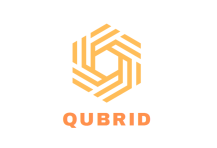Qubrid aligns with Nvidia, integrates cuQuantum, CUDA Quantum

Qubrid, provider of a hybrid quantum-classical computing cloud platform, announced it has joined the Nvidia Inception program for start-ups working with quantum computing, AI, and GPU technologies.
The McLean, Virginia-based company also is integrating the Nvidia cuQuantum SDK, optimized libraries and tools for accelerating quantum computing workflows, and CUDA Quantum, an open-source programming model extending both C++ and Python, into Qubrid’s hybrid quantum-classical cloud platform. This integration will help abstract underlying infrastructure so AI, machine learning, and quantum developers can focus more of their energy and time on developing their applications and leave their Infrastructure-as-a-Service (IaaS) and Platform-as-a-Service (PaaS) infrastructure headaches to Qubrid, according to a company statement.
The Nvidia Inception program offers a variety of support and innovation acceleration capabilities to start-ups and growth. Members also can receive funding through the program or affiliations with the broader venture capital community, though Qubrid did not announce at this time that it is taking advantage of that aspect of the program.
“We are super excited to be part of Nvidia Inception and join top companies advancing AI, machine learning and quantum computing,” said Pranay Prakash, CEO of Qubrid. “The program will enable us to work closely with Nvidia and its customers, partners and investors. Specifically, the collaboration will accelerate our cuQuantum and CUDA Quantum initiatives, which are key pillars of our quantum strategy. We are moving at top speed with our research and development activities, and with Nvidia we hope to change the game in quantum-classical computing.”
Qubrid’s multi-cloud quantum-classical platform integrates the widely adopted IBM Qiskit framework and other open tools to help developers program and test algorithms and build high-performing applications for both quantum computers and GPU servers. The company has a heavy focus on AI, and said it is performing research on cutting-edge use cases in generative AI, healthcare, finance, etc., and are developing applications and algorithms to optimize the use of quantum-classical computing.
The Nvidia announcement comes not long after Qubrid partnered with Dihuni, a provider of digital transformation, AI and IoT solutions. Nvidia, meanwhile, continues to mine opportunities for GPU-accelerated hybrid classical-quantum projects.
Dan O’Shea has covered telecommunications and related topics including semiconductors, sensors, retail systems, digital payments and quantum computing/technology for over 25 years.



















